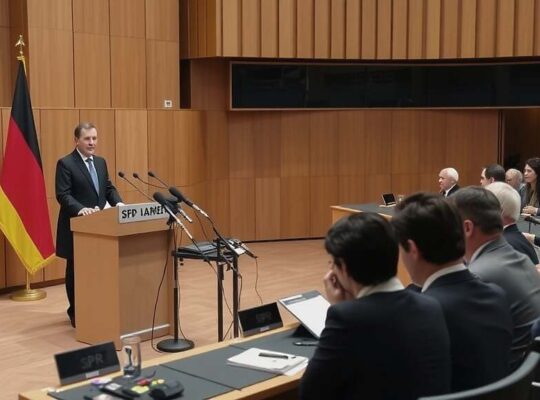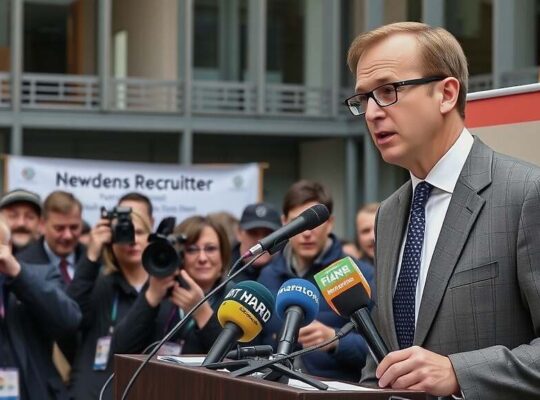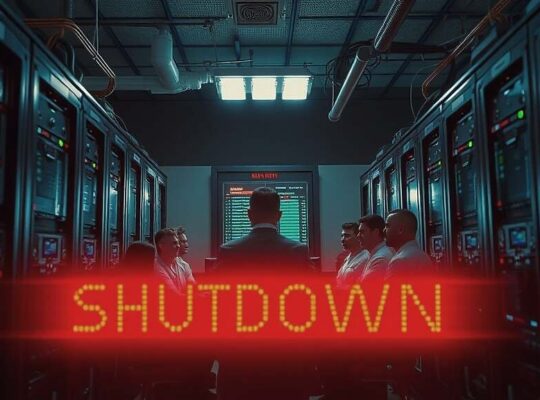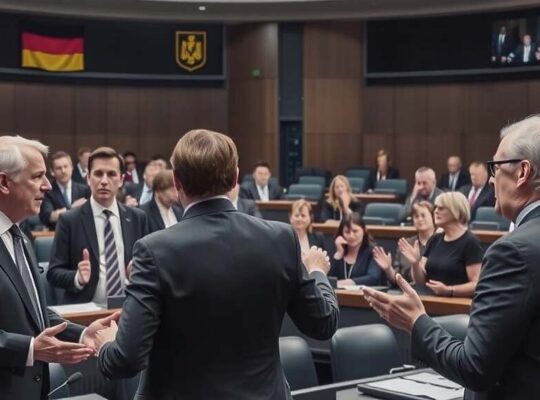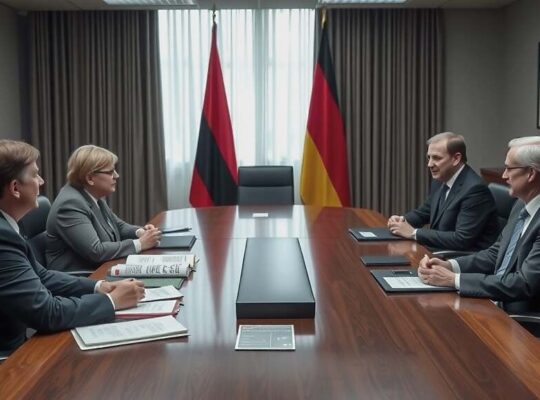The German Bundestag is poised this week to debate a significant overhaul of military service regulations, a discussion fueled by shifting public opinion and the ongoing geopolitical landscape. A recent Forsa poll commissioned by “Der Stern” reveals that a slight majority of Germans – 54% – now support the reintroduction of compulsory military service, a marked change from sentiments observed prior to the war in Ukraine. Only 41% currently oppose the measure, with 5% expressing no opinion.
The resurgence in support for mandatory service is not uniformly distributed across the political spectrum. While proponents are overwhelmingly concentrated among voters of the conservative CDU/CSU (74%), surprisingly, a substantial 58% of SPD (Social Democratic Party) supporters also favour a return to the pre-2011 system. This internal division presents a critical challenge to the current “black-red” coalition government, with the SPD acting as a primary obstacle to any swift legislative action.
The Die Linke (Left Party) stands in stark opposition, with a resounding 80% of their voters rejecting the proposal. Interestingly, the generational divide reveals an uncomfortable truth for proponents: the demographic group most directly impacted – 18 to 29-year-olds – express significant resistance (63% against). This suggests that any renewed conscription drive would likely face considerable bureaucratic and social hurdles in terms of recruitment and participation.
The shift in public opinion regarding military service is not entirely new. Forsa has repeatedly surveyed the issue since Russia’s invasion of Ukraine in February 2022. While initial responses fluctuated, a definitive pro-conscription sentiment solidified in March 2024. Critically, the existing legal framework, technically suspending rather than abolishing the obligation in 2011, provides a relatively straightforward legislative path towards reinstatement.
However, the debate transcends mere legalities. The burgeoning support, particularly within the SPD base, hints at a broader anxiety surrounding national security and a growing distrust of relying solely on professional military forces. Whether this support translates to political action and whether the current government can navigate the inherent contradictions within its ranks, remains to be seen. The generational reluctance amongst potential conscripts raises fundamental questions about the viability and social acceptance of any renewed conscription program, further complicating the already fraught political climate.



